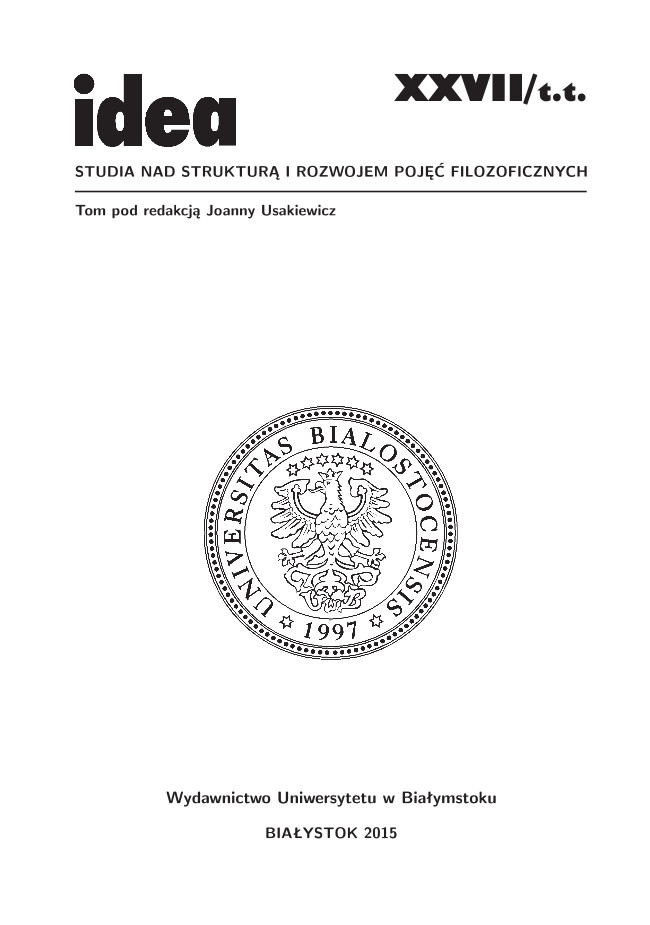Marin Cureau de La Chambre o naturze uczuć ludzkich, mechanizmach ich powstawania i ich znaczeniu w celu wyrażenia stanów duszy za pomocą mowy ciała
Marin Cureau De La Chambre on the Nature of Human Emotions, the Mechanism of Creating Them and Their Significance to Express a State of Mind Using Body Language
Author(s): Tomasz SteglińskiSubject(s): Philosophy, History of Philosophy, Early Modern Philosophy
Published by: Wydawnictwo Uniwersytetu w Białymstoku
Keywords: Marin Cureau de La Chambre; human emotions; body language
Summary/Abstract: Marin Cureau de la Chambre belonged to the group of medicals and philosophers who played a significant role in the development of French philosophy of the seventeenth century. The scholar dealt with the basics of physiognomy and achieved a significant progress in this area. His main work, dedicated to the expression of emotions, provides a comprehensive analysis of human behavior and a classification of feelings. De la Chambre considered himself as a continuator of Aristotle’s works, but his research was in response to the demand of his own era. The author values more highly the realm of emotions and against the tendencies of rationalism, considers human nature almost entirely in their aspects. He considers the body as a medium which helps the soul express all its states of being. Body language is treated as a key to the human psyche. His method is designed to expose the real nature that people are trying to hide behind the conventions and cultural masks. For this purpose de la Chambre deepens his gaze on the context which can be defined as socio-psycho-geographic. The knowledge gained in this way was to be used in human resource management, politics, but also effectively navigating the intricacies of court life. In comparison with Descartes, the medical presents himself as the one who came closer to the knowledge of the “real man”, which, for the other one is clearly lacking. The article presents the main assumptions of de la Chambre’s physiognomy and, where possible, seeks to compare his “Expressions of feelings” with Descartes’ “Passions of the soul”.
Journal: Idea. Studia nad strukturą i rozwojem pojęć filozoficznych
- Issue Year: 1/2015
- Issue No: XXVII
- Page Range: 57-77
- Page Count: 21
- Language: Polish

